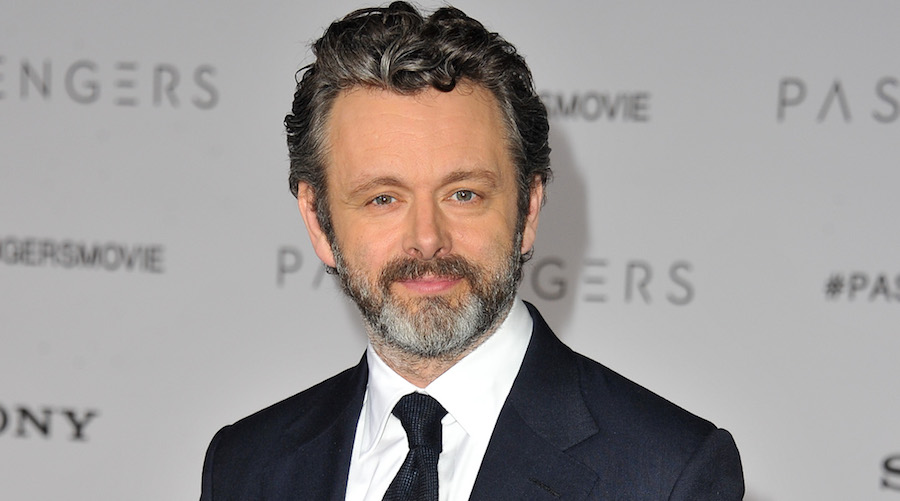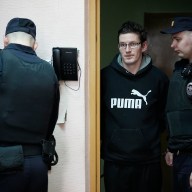Ian Holm in “Alien.” Michael Fassbender in “Prometheus.” Anthony Daniels’ C-3PO. Now there’s Michael Sheen in “Passengers” — all actors who’ve played British robots. Sheen is one of the sci-fi film’s few main cast members, taking on the role of a mecha-bartender aboard a luxury spaceship spiriting thousands of sleeping patrons to a far-off planet. When one of them (Chris Pratt) is accidentally awoken — who then awakens a second (Jennifer Lawrence) — Sheen’s Arthur finds himself serving a very limited clientele. The acclaimed actor, 47, who’s actually Welsh, talks to us about his love of “Westworld,” the nature of consciousness and not learning how to make a mean Manhattan.
So, tell me about playing a robot. RELATED: The top 10 best films of 2016 (and 15 more that were great, too) Arthur, though, has a simple directive. He’s probably not going to suddenly kill everyone, like Ian Holm in “Alien.” That raises some fascinating ideas of how consciousness works. We think of it as genetic, but we can see that a form of it can, debatably, happen in A.I. I found that interesting, that maybe something’s emerging in him. There’s this idea that consciousness comes out of more and more complex networking of neurons. The more complex the situations become, perhaps at some point it turns into something that looks like consciousness. In a small way, that’s what’s going on with Arthur. Tell me about the other part of your job here, which is playing a bartender. So you never learned to make a mean Manhattan? You performed the role while on a mechanical rod that zips you around behind the bar. That sounds painful. Correct me if I’m wrong, but you haven’t had many roles where you’re strapped into some weird contraption. You probably didn’t to do that during your 2011 stint as Hamlet in London. What was the connection? This isn’t your first non-human character. You played a computer program in “Tron: Legacy,” though there you didn’t get to do it as a robot.
There’s a tradition of British-accented movie robots that I have now joined, which I feel very honored about. There’s a certain expectation when you see a science fiction movie with a robot that has a British accent. There’s a suspicion of what the agenda might be, of what the robot might do.
He’s been programmed to be the perfect bartender. And that means not just the technical aspects of the job, but how he relates to his customers. He needs to anticipate the needs of his customers. If one person just wants quiet, then you do that; if one person wants to talk, you do that. With Jim, he just has one customer. It means that Arthur has to become as human as possible. He becomes a bit Pinnochio-like. He wants to become a real human.
I’ve been a big fan of “Westworld” recently and thinking about the idea of how consciousness can emerge. In our movie, the circumstances combine to push beyond what [Arthur] was programmed to do. No one ever imagined he’d have one person to deal with. In adapting to one person, it pushes him into areas that create situations he just wasn’t programmed for. Maybe it creates something new.
There was one very specific bartender that we’re obviously tipping the hat to, which is Lloyd from “The Shining.” My costume looks like his, that bar is meant to look like his to a certain extent. But mainly my focus [with bartending] was there were scenes where Chris and Jen are doing really intimate, beautifully delicate scenes together, while I’m supposed to be making a cocktail in the background. The last thing you want to do as an actor is to mess up takes that are really not about you, because of what you’re doing in the background. I did not want to knock over a bottle of bourbon in the middle of a take that was not about me.
If I didn’t have to do it in the film, I didn’t learn how to do it. I wanted to be economical and effective in what I did and not mess everything up.
It was not the most comfortable thing, but the guys who put it together really did a great job. They tried to make it as non-painful as possible for me. But spending all day, hours and hours, in that contraption was not great. But it was very effective. It really did help me get a sense of being nonhuman.
Although! I have to say, when I did Hamlet, one of the big influences on it was Philip K. Dick. So there’s a science fiction connection there.
The familiar Philip K. Dick character is someone who starts to question whether what is going on around him is real, or whether there’s a form of reality behind that. And one aspect of “Hamlet” is he starts to question his sanity — what is real and what only seems to be real. We played with that a lot.
Exactly. I’m so versatile in the programmed characters I play.
Michael Sheen on joining the ranks of British robots with ‘Passengers’

Getty Images
Follow Matt Prigge on Twitter @mattprigge


















